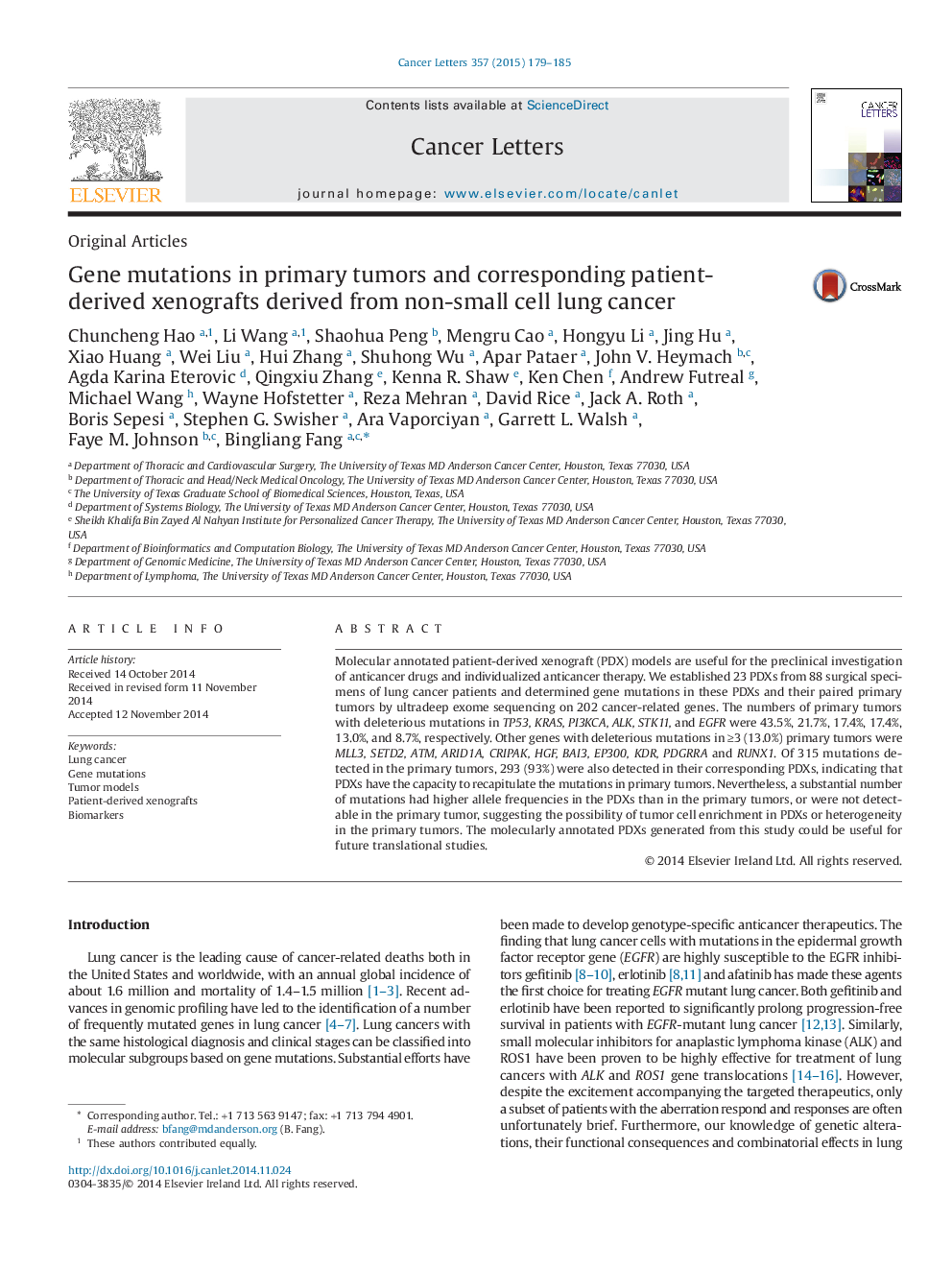| Article ID | Journal | Published Year | Pages | File Type |
|---|---|---|---|---|
| 10899580 | Cancer Letters | 2015 | 7 Pages |
Abstract
Molecular annotated patient-derived xenograft (PDX) models are useful for the preclinical investigation of anticancer drugs and individualized anticancer therapy. We established 23 PDXs from 88 surgical specimens of lung cancer patients and determined gene mutations in these PDXs and their paired primary tumors by ultradeep exome sequencing on 202 cancer-related genes. The numbers of primary tumors with deleterious mutations in TP53, KRAS, PI3KCA, ALK, STK11, and EGFR were 43.5%, 21.7%, 17.4%, 17.4%, 13.0%, and 8.7%, respectively. Other genes with deleterious mutations in â¥3 (13.0%) primary tumors were MLL3, SETD2, ATM, ARID1A, CRIPAK, HGF, BAI3, EP300, KDR, PDGRRA and RUNX1. Of 315 mutations detected in the primary tumors, 293 (93%) were also detected in their corresponding PDXs, indicating that PDXs have the capacity to recapitulate the mutations in primary tumors. Nevertheless, a substantial number of mutations had higher allele frequencies in the PDXs than in the primary tumors, or were not detectable in the primary tumor, suggesting the possibility of tumor cell enrichment in PDXs or heterogeneity in the primary tumors. The molecularly annotated PDXs generated from this study could be useful for future translational studies.
Related Topics
Life Sciences
Biochemistry, Genetics and Molecular Biology
Cancer Research
Authors
Chuncheng Hao, Li Wang, Shaohua Peng, Mengru Cao, Hongyu Li, Jing Hu, Xiao Huang, Wei Liu, Hui Zhang, Shuhong Wu, Apar Pataer, John V. Heymach, Agda Karina Eterovic, Qingxiu Zhang, Kenna R. Shaw, Ken Chen, Andrew Futreal, Michael Wang, Bingliang Fang,
